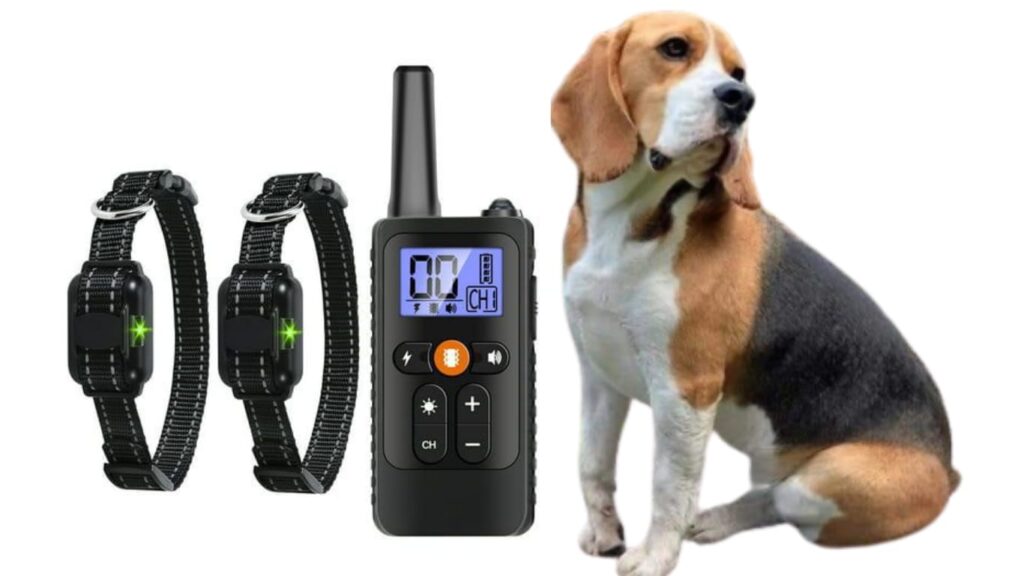Do Vets Recommend Anti Barking Devices?

Do Vets Recommend Anti Barking Devices?
In a world full of different dog types, all of them share one thing: barking. While barking is how our furry friends talk to us, too much noise can be a worry for pet owners. So, here’s a big question: Do vets suggest using things like anti-bark collars or anti-dog barking devices?
Yes, some vets say these devices can help manage a dog’s non-stop barking. Picture it like a tool in a toolbox. One tool might be an anti-bark collar, and another could be an anti-dog barking device. But, it’s super important to be careful when using these tools. You should chat with a vet before you try them out. Vets are like experts for our pets, and they can help figure out if these tools are right for your dog. By working together with a vet, we can find the best way for our dogs to keep being themselves while making sure our homes stay nice and calm.
Do Vets Recommend Anti Barking Devices?
Excessive barking can strain the relationship between pet owners and their furry companions, disrupt neighbors, and even lead to conflicts in shared living spaces. Whether it’s triggered by excitement, fear, or simply as a response to external stimuli, understanding and managing excessive barking is a common challenge for dog owners worldwide.
In this article, we will delve into the world of anti-barking devices, also known as anti bark collar and exploring their various types and how they work. We’ll also examine the perspective of veterinarians when it comes to recommending these anti barking devices, shedding light on the considerations and alternatives that can help create a more harmonious environment for both pets and their owners.
Why Anti-Barking Devices Matter
Dogs bark for various reasons, including excitement, fear, or as a response to external stimuli. While some barking is perfectly normal, incessant noise can be distressing for both pet owners and neighbors. This is where anti-barking devices enter the picture.
Understanding Anti-Barking Devices
When it comes to discouraging excessive barking, ultrasonic devices have gained popularity. These devices emit high-frequency sounds that are unpleasant for dogs but often go unnoticed by humans. They serve as a gentle reminder for your furry friend to keep the volume down.
Shock collars are another type of anti-barking device. They deliver a mild electric shock when triggered by barking, teaching dogs to associate barking with an uncomfortable sensation. However, it’s important to use them under the guidance of a professional trainer or veterinarian.
Citronella collars work by spraying a burst of citronella scent when your dog barks. Dogs find the scent unpleasant, which deters them from excessive vocalization. This method is considered humane and effective.

The Veterinary Perspective
Now that we’ve explored the types of anti-barking devices, it’s time to address whether vets recommend them.
Many veterinarians are cautious about recommending anti-barking devices, and here’s why. While these devices can be effective in reducing barking, they don’t always address the underlying cause. In some cases, excessive barking might be a symptom of an underlying health issue or behavioral problem.
Vets recommend that before turning to anti-barking devices, pet owners consult with a professional to rule out any medical conditions or behavioral concerns. This ensures that the solution is tailored to the specific needs of the dog.
Veterinarians often emphasize the importance of positive reinforcement and proper training techniques. Instead of relying solely on anti-barking devices, they suggest investing time and effort in training your dog to understand when it’s appropriate to bark and when it’s not.
How Do Anti-Barking Devices Work?
Anti-barking devices work on the principle of association. Dogs are intelligent creatures that can quickly learn from cause and effect. When they realize that barking triggers an uncomfortable response, they begin to associate barking with an undesirable outcome, leading to reduced noise levels.
These devices are designed to ensure gradual habituation. They start with milder corrections and increase the intensity if barking persists. This humane approach prevents undue stress on your pet.
Health Considerations for Anti-Barking Devices
Pet owners often wonder about the physical impact of anti-barking devices. It’s essential to choose devices that are safe and have been vetted by professionals. Cheap or poorly designed devices may cause unnecessary harm.
Another aspect to consider is the psychological well-being of your furry friend. Stress or anxiety caused by anti-barking devices can have adverse effects. This is why consulting with a veterinarian is crucial to ensure your pet’s emotional health is not compromised.
Are anti-bark collars harmful to dogs?
These devices, also known as bark control devices or anti-dog barking devices, aim to manage excessive barking through various means like sound or mild static. While they can be effective, it’s crucial to use them responsibly.
considering anti-bark collars, it’s essential to follow the manufacturer’s instructions carefully. Incorrect use or prolonged use without breaks may cause discomfort for your furry friend. Additionally, some dogs may be more sensitive to the methods used in these devices. Responsible usage and close monitoring are key to ensuring your dog’s well-being.
In the end, finding the right balance between addressing excessive barking and keeping your dog comfortable is vital. If you’re unsure about using an anti-bark collar, seeking advice from a veterinarian can provide valuable insights tailored to your dog’s specific needs and sensitivities.

Conclusion
In conclusion, whether Do vets recommend anti-barking devices isn’t a simple yes or no. While these devices can be effective tools for reducing excessive barking, they should be used cautiously and in conjunction with professional guidance. The health and well-being of your beloved pet should always be the top priority.
You can also read this: What Are The Side Effects Of A Bark Collar?
Do Shock Collars Activate When Another Dog Barks?
Can You Leave A Bark Collar On All Night?
Do Bark Collars Work On Large Dogs?
FAQs
1. Are anti-barking devices safe for all dogs?
Anti-barking devices can be safe if used appropriately. Consult your veterinarian to ensure the chosen device is suitable for your dog’s size, breed, and temperament.
2. Can anti-barking devices harm my dog?
If used correctly, most anti-barking devices are designed to be safe. However, improper use or low-quality devices can potentially harm your dog. It’s crucial to follow guidelines and seek professional advice.
3. Are there alternatives to anti-barking devices?
Yes, there are alternatives such as behavioral training, positive reinforcement, and consulting with a professional dog trainer or behaviorist.
4. How long does it take for anti-barking devices to be effective?
The effectiveness of anti-barking devices can vary from dog to dog. Some may show improvement within days, while others may take weeks. Consistency and patience are key.
5. Do I need a vet’s prescription to use anti-barking devices?
In most cases, you do not need a prescription to purchase anti-barking devices. However, it’s advisable to consult with a veterinarian before using them to ensure they are suitable for your dog’s specific needs.




